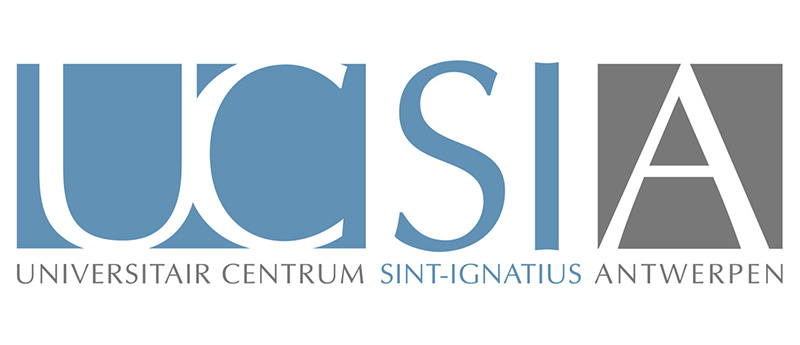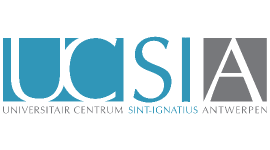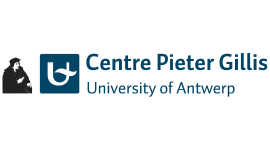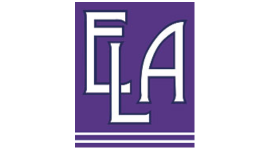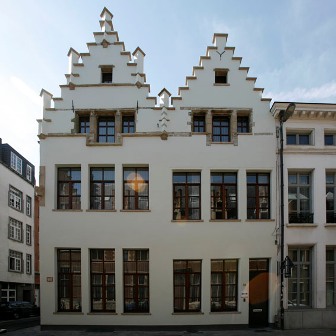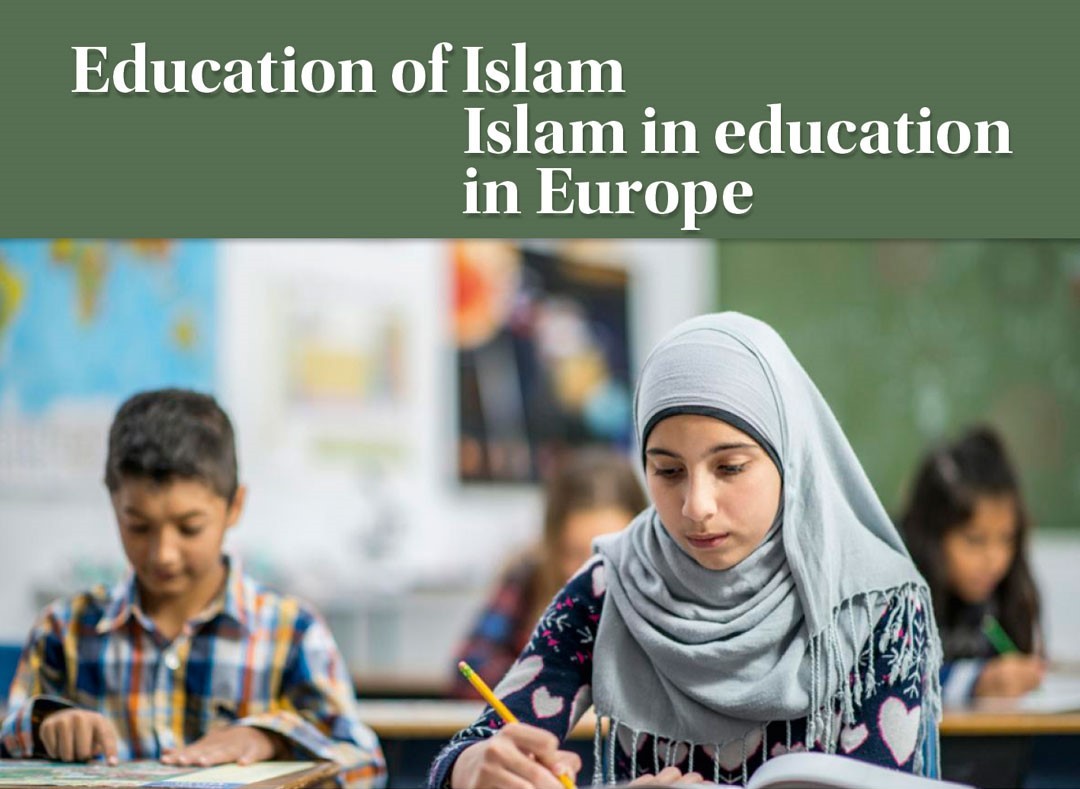
Education of Islam – Islam in Education in Europe
conference 23 – 25 March 2022
In the present context of polarization and radicalization, the school subject ‘Islamic Religious Education’ gains much attention among national policy makers, but there is no common European standard for its organization. Hence different European nation states organize it in their own way, in conformity with their own constitutional, educational and church-state tradition.
By bringing together scholars with different academic backgrounds and from different European contexts, we aim to stimulate the debate about Islam and education in Europe. Moreover, the combination of a legal and institutional approach with a practical and pedagogical approach is quite challenging and should inspire an in-depth debate on core questions such as: are the existing legal frameworks adequate for the accommodation of Islam in education and for the organization of Islamic religious education or are (legal) improvements required? What are, in practice, possible obstacles resulting from the legal and institutional frameworks? Is it possible to design a ‘European’ framework for Islam and education and for Islamic religious education? How do different European nation states deal with Islam in education and can we learn lessons from each other?
The conference will be preceded by a public opening lecture on the evening of Wednesday 23 March with an international expert on Islam.
The programme of the first conference day, on Thursday 24 March, will offer a legal and policy perspective regarding Islam and education. It will investigate ‘rational Islam’ as a lever against extremism and ‘radicalization’, presenting some cases throughout Europe. It will subsequently focus on the cultural context in which schools operate and how they deal with Islam in educational practice. Good practices will be presented on how to introduce more diversity and strengthen capacity within the team of teachers and how to ensure parental involvement, taking into account both internal and external stakeholders. Additionally national cases of accommodating Islam in schools (e.g. swimming, halal nutrition, creationism, Ramadan, praying at school) will be presented.
On the second day of Friday 25 March, the focus will shift to the organization of Islamic religious education in state schools, in public Islamic schools and Islam in non-confessional education. Presenters from different European contexts, authors of the recent book Islamic Religious Education in Europe (Routledge), will elucidate the organization of Islamic religious education in their respective countries, with particular attention for church-state policy and its implications for curricula, inspection, teacher training and textbooks; tensions between Islamic faith and some ideas of liberal democracy; the inclusion of minority perspectives and the representation of Islam; the role of religious education in preventing radicalization and the potential of ‘Enlightened’ or ‘European’ Islam in education.
In the concluding section, the organization of Islamic religious education will be evaluated in an interdisciplinary way, with a particular focus on European guidelines and recommendations concerning religious education and citizenship education, as well as on normative and pedagogical perspectives on Islamic religious education.
Opening session by Malika Hamidi
The Contribution of Islamic Education to European Society
Whereas the integration of religious education or education of religion is in itself already a sensitive democratic challenge, the education of Islam all the more. Following the 9/11 attacks, the surge of extreme rightwing parties and the phenomenon of ‘radicalization’ itself, the issue of Islamic education has been highjacked by prejudice rooted in an international context of negative perception of Islam.
This lecture will look into the challenge the stereotypes and prejudices of opponents pose for Islam. The promotion of a literal reading of the religious sources, increased identity claims and alimentary impositions, ghettoization or isolation of certain schools and pupils, quality of education and formation of teachers (especially from other backgrounds unfamiliar with the European context); these are all tendencies feeding the opposition against Islamic education or the education of Islam in school.
Nevertheless religious education could be a means to combat all forms of extremism and domination and to promote social cohesion and respect for diversity, through interreligious dialogue.
Malika Hamidi is doctor in sociology from the ‘École des Hautes Etudes en Sciences Sociales’ (EHESS) of Paris. She is currently research assistant at the ‘Université Catholique de Louvain’ for the AFFECT project ‘Impact Assessment of Belgian De-radicalisation Policies upon Social Cohesion and Liberties’, led by Professor Fabienne Brion. She is also affiliated as researcher to the Centre de recherches et d’interventions sociologiques’ (CESIR) of the ‘Université Saint Louis’ in Brussels and the ‘Laboratoire d’analyse des sociétés et pouvoirs / Afrique – Diasporas (LASPAD) of the ‘Université Gaston Berger’ of Saint-Louis, Senegal.
An expert on Muslim feminism in Europe, she published her doctoral thesis in 2017 (which was re-edited in 2020) with ‘Editions de l’Aube’ under the title ‘Un féminisme musulman, et pourquoi pas?’ with a forword by Alain Gresh. Her publication ‘La révolution des féminismes musulmans: essai de décolonisation et agir politique’ will come off press soon at Peter Lang International Academic Publisher.
Day I
Policy and Law on Islam in Education and Education of Islam
Thursday 24 March 2022, 9.30 a.m. – 5.30 p.m.
Session 1: Global context and contours regarding Islam in education and education in Islam
Keynote by Martin Seychell (DG International Partnerships of the European Commission)
Martin Seychell is a graduate in chemistry and pharmaceutical technology. He occupied the post of Head of Directorate for Foodstuffs and Chemicals at the Malta Standards Authority between 2001 and 2006, and that of Director of Environment Protection at the Malta Environment and Planning Authority between 2006 and 2011.
He was appointed Deputy Director General for Health and Consumers at the European Commission in March 2011. Between 2014 and 2020 he was Deputy Director-General for Health in the Health and Food Safety Directorate-General (SANTE), responsible for directorates dealing with public health and health systems and products, covering a number of policy areas including health security, health systems, pharmaceuticals, medical devices, tobacco control and digital health.
He also represented the Commission on the Management Board of the European Centre for Disease Prevention and Control (ECDC) between 2011 and 2020.
He was appointed Deputy Director General responsible for Directorates G & R (Human Development, Migration, Governance and Peace (G), and Resources (R) in DG INTPA in June 2020.
Session 2: Rational Islam as lever against extremism and ‘radicalization’: Cases throughout Europe
The cultural context – Islam schools: threat or enrichment?
Critical Islamic Education, Cultural Empowerment & Democratic Citizenship
Abdullah Sahin
How can Islamic schools become agents of positive change in European Muslim communities? The social significance of religion in Western European societies is reflected in the continuing presence of religious education and faith-based schooling within their diverse secular educational systems. Minority religious communities benefit from this inclusive democratic right which enables them to educate their young generations within the educational vision of their cultural, religious traditions. However, the increasing association of Islam with extremism and international terrorism have rekindled questions over the relevance and desirability of faith (Islamic) schools in modern Europe. Islamic Education has emerged as a contested ideological space. Diverse community-based actors/networks have claimed it to reproduce certain contextual Islamic identities.
Similarly, the secular state, in the name of social integration, has started to utilize Islamic Education in order to refashion religiosity of its Muslim citizens through hegemonic securitization policies. This highly politicized context urges us to rethink critically what constitutes Islamic Education and Islamic schooling in culturally and religiously plural secular Europe.
Abdullah Sahin is a Reader in Islamic Education at the Department of Education Studies, University of Warwick, UK. He comes from an Islamic Studies, Theology and Social Sciences background. He has conducted research on religious identity formation among British Muslim youth and worked on educational strategies to address the impact of religious extremism within Muslim minority and majority contexts. He has developed the first recognized Masters’ level degree programme on Islamic Education within the UK higher education system. He has taught at the universities of Birmingham, Aberdeen, and the Gulf University for Science and Technology (Kuwait). He is the author of the critically acclaimed book, ‘New Directions in Islamic Education: pedagogy and identity formation (Kube, 2015). He is a member of the International Seminar on Religious Education and Values (ISREV) and has recently been appointed as Honorary Professor of Contemporary Muslim Educational Thought at the Indonesian International Islamic University (UIII), Jakarta, Indonesia.
Session 3: How to introduce more diversity and capacity within the team of teachers,
how to ensure best practices and parental involvement
Keynote by António Pedro Barbas Homem
Europe and European societies are facing today complex threats to freedoms, especially of conscience, religion, education and expression, but, at the same time, some religious forces present themselves in a totalitarian way that also threatens fundamental freedoms and the social cohesion of democratic societies. We are also experiencing two revolutions, the fourth industrial revolution and the western cultural revolution, that is also changing values and norms and is fueled by new technologies and media. These very fast transformations in the public and in the private spheres are reflected in the school model. Digital tools and learning sciences are central to rethink education, preserving and fostering the intellectual traditions of critical thinking and the liberal model combining arts, literature and culture. For learning in school can a panoply of digital means can be put to use to reinforce capabilities of students to prevent them from the dangers of extremism, fundamentalism and ignorance. The challenge of balancing rights inside the school should be addressed using these new tools, so familiar to young students but also used by extremist forces, in the context of a new school model.
António Pedro Barbas Homem is professor at the Faculty of Law of the University of Lisbon, where he obtained his PhD in Law cum laude and his Agrégation, and where he has taught, over the past 30 years, Theory of Law, History of Law, Education Law and International Relations History and Theory. He has also lectured at Universidade de Coimbra, Universidade de São Paulo, Federal University of Pernambuco, Faculdade Damas – Recife, PUC Minas Gerais, Universidade Complutense of Madrid, Universidade of Santiago de Compostela. He was Visiting Professor in Universities of several other Portuguese-speaking countries and territories, notably: (i) the Eduardo Mondlane University; (ii) the Agostinho Neto University; (iii) the Law School of the University of Macau, China; and (iv) the Goa University Law Colleges, in India.
He was a lecturer at the Supreme Courts and training academies of judges of São Paulo, Florianopolis, Recife, Salvador, Brasilia, Porto Alegre.
Session 4: How to deal with Islam in educational practice: European cases
(swimming, halal nutrition, creation story, Ramadan, praying at school, Koran schools…)
Religious Liberty, Neutrality and Prohibition of Discrimination: Islam in European Schools
Merilin Kiviorg
Although courts (international or domestic) may not be the best place to deal with issues regarding Islam in education, they have been, nevertheless, called to deliver judgements on the matter. It also seems to be an uncomfortable topic for the courts. Thus, one can witness variable approaches, even at the international and European levels. One of the reasons is that while international and European instruments create a framework for the educational environment where schools operate in Europe, they also respect national traditions and cultural heritage. The European Court of Human Rights, for example has mainly applied a broad deference to national decisions (margin of appreciation) in cases touching freedom of religion or belief in the educational environment, and specifically in cases involving Islamic belief. Whether this margin has always been justified, especially regarding educational institutions and religion, is a matter of contention.
Roughly speaking, there are two opposite approaches/trends, one arguing for more collective and the other for more individual freedom, which at first glance are irreconcilable, but are not necessarily so upon further reflection. The ambitious focus of the presentation is to probe practice of the courts from the perspective of the simultaneous need to protect the right of freedom of religion or belief, secure state neutrality and avoid discrimination.
Merilin Kiviorg is an associate professor in International Law at the University of Tartu School of Law, a member of the Panel of Experts on Freedom of Religion or Belief of the OSCE/ODIHR and a member of the Chancellor of Justice’s Human Rights Advisory Board in Estonia. She obtained her doctorate as well as taught international law at the University of Oxford. She was a Max Weber Fellow at the European University Institute in Florence. She has advised governmental bodies in Estonia on matters of religious freedom. She is currently a principal investigator in the project ‘Russia and Consolidation of Regional International Law in Eurasia’. Her research interests are in the field of international law, human rights, and religious freedom. Her publications include: M. Kiviorg (ed.), Securitisation of Religious Freedom: Religion and Limits of State Control (Editorial Comares 2020); ‘Dangers of the Changing Narrative of Human Rights – Why Democracy and Security need Religious Freedom’ in Rex Ahdar (Ed.), Research Handbook on Law and Religion (Edward Elgar 2018); ‘Religious Freedom and Security in Eastern Europe and Central Asia’ in Kerstin von der Decken and Angelika Günzel (eds), Staat – Religion – Recht (Nomos 2020).
Day II
Organization of Islamic Religious Education in European Countries
Introductory lecture: IRE in Europe – setting the scene
Leni Franken & Oddrun Bråten
Session 5: Confessional/denominational IRE in state schools
Islamic Religious Education in Belgium
Caroline Sägesser
Keynote by Caroline Sägesser (History, CRISP)
Belgium recognized Islam as early as 1974, and while implementing this decision proved quite difficult as far as mosques and imams were concerned, Islamic religious education was quickly organized in public schools, where pupils have a choice between religious education in one of the six recognized faiths or non-denominational ethics. In 1989, the federalization of Belgium transferred education to the Communities. Those federated entities have been facing similar problems for 30 years : Islamic RE curriculum is lacking in quality and most of the teachers do not have a suitable teaching degree. Meanwhile, IRE has become very popular in urban schools; in Brussels public schools, it is chosen by a majority of the pupils. In this contribution we explain the Belgian system of RE, detail the specific challenges posed by IRE and explore the solutions implemented or foreseen by public authorities to improve the situation.
Caroline Sägesser holds an MA from Brown University, Rhode Island and a PhD in History from Université Libre de Bruxelles. She is a senior researcher at CRISP (Centre de recherche et d’information socio-politiques / Brussels) where one of her fields of research is religion and public policy in Belgium.
Islamic Religious Education in Greece
Angeliki Ziaka
Keynote by Angeliki Ziaka (Islamic Studies, Aristotle University of Thessaloniki)
The present lecture focuses on the changes in Islamic Religious Education that have taken place in Greece in recent years, especially since 2013. We will explore the challenges facing religious education in general, the influence exerted by religious communities on the particular form of the subject, the capabilities of the school system, and the demands of contemporary social life the school system is called upon to satisfy.
The paper will outline the ways in which IRE is taught in the state schools of Western Thrace, by identifying the differences in methodology and teaching materials in this subject by comparing IRE in state schools, madrasahs, minority schools and RE in state schools all over the country.
Angeliki Ziaka is associate professor at the Aristotle University of Thessaloniki. She took her PhD from the Marc Bloch University of Strasbourg in 2002 with the title ‘La Recherche Grecque contemporaine et l’Islam’. She also studied at the Institute of Arabic and Islamic Studies in Rome, the History Department of the Royal University of Amman, and she has conducted research in Iran and Oman since 2006. Her interests include early and medieval Islamic historiography and Kalam; Byzantine and post-Byzantine literature on Islam; religious historical narratives and the re-articulating of Muslim identities through religious discourse and political realities in the Middle East, inter-religious dialogue and religious education in religious and secular environments and institutions.
Denominational Education for Muslim Pupils in France
Diane-Sophie Girin
Keynote by Diane-Sophie Girin (Educational Science, Paris 8)
The lecture describes the emergence in France of a denominational education offer for Muslim pupils. The aim is to put into perspective the weakness of the Muslim education offer compared to other denominational offers.
We will then draw up a typology of Islamic instruction offers in Muslim schools with or without state fundings (four approaches were identified within the schools in our sample). The paper will also discuss the case of the first – and so far only – textbook for teaching Islamic instruction in Muslim schools. Finally, we will open up on the paradoxes faced by schools that provide Islamic confessional education: how to assert a specificity while showing respectability? This raises the very question of their existence in a politically tense context.
Diane-Sophie Girin teaches educational sciences at Université Paris 8. She has just obtained her PhD in sociology. In her research she looked into Muslim schools being caught in a tension between the desire to be perceived as ‘regular’ schools while striving to assert specificity. Based on interviews and observations of eleven private Muslim elementary schools located in metropolitan France, it examines the way in which schools are crossed by two movements, the first of respectabilization, the second of distinction. Opting for a setting in favour of distinction, or even disrespectability, is proving costly for Muslim schools, all the more so after the passage of new legislation that specifically addresses the regulation of private education, like the Gatel law (2018) and the law reinforcing respect for the principles of the Republic (2021). Conversely, taking the side of respectabilization in order to obtain subsidization from the state does not mean that the endeavour is always successful. For political as well as economic reasons, the ‘contractualization’ of Muslim schools has come to a halt.
Confessional/Denominational IRE in Non-governmental Islamic Schools in The Netherlands
Ina ter Avest
Keynote by Ina ter Avest (Religious Education, Vrije Universiteit Amsterdam)
In The Netherlands all Islamic schools are, like all other state-funded schools, controlled by the Schools Inspectorate on a yearly basis, but the subject of IRE is excluded from this state control. Given the separation of church and state, it is not up to the state to interfere with the content of IRE, as long as the subject does not infringe upon human rights. Islamic schools are free to choose their own teaching methods and materials, which can be very different in different schools. For a first impression of the current field, in our presentation we will have a closer look at three IRE textbooks.
These days, the focus in religious education is increasingly on ‘togetherness’, ‘citizenship’ and ‘social cohesion’, which is often at the expense of knowledge of one’s own religious tradition. Knowledge about Islam is, however very important in the present multi-religious context.
In our view, in order to prepare all pupils for a future life in Dutch society and in order to make them ‘religiously literate’, education about, as well as of Islam (for those students who chose so), needs further improvement.
Ina ter Avest is professor emeritus Religious Education. She did her PhD on the development of the god-concept of children in an interreligious education context.
Her research interest is religious identity development in plural contexts, with a focus on hybrid identity development of learners and students in Dutch (secularized) Christian society.
She has published on leadership, and on (tense situations in) interreligious education.
- Avest, I. ter (2019). Provocative guidance: a practice of narrative leadership. In H. Alma & I. ter Avest (Eds.) Moral and Spiritual Leadership in an Age of Plural Moralities. London/New York: Routledge, Taylor & Francis Group. pp. 91-106.
- Avest, I. ter (2021). Vulnerable situations in the classroom. Religionspaedagogische Beiträge/Journal for Religion and Education 44 (1), p. 75-82. http:dx.doi.org/10.20377/rpb-111.
Islamic Religious Education in Finland
Inkeri Rissanen
Keynote by Inkeri Rissanen (Faculty of Education and Culture, University of Tampere)
In Finland, Islamic religious education is taught as part of the school curriculum in governmental primary and secondary schools, where the vast majority of children are educated. It is a knowledge-based subject guided by the general pedagogical aims of governmental schools rather than by the interests of religious communities. This presentation will look at the way IRE is currently organized in Finland as well as the principal and practical challenges it faces. Furthermore, the multidimensional role IRE plays in the inclusion of Muslim students and parents in Finnish schools will be discussed, particularly focusing on the experiences of Islamic IRE teachers who often are positioned as “cultural brokers” in their school communities.
Inkeri Rissanen is a lecturer of multicultural education at the Faculty of Education and Culture, University of Tampere, Finland. Her main research interests include religion in public education and, in particular, questions concerning the inclusion of Muslims, social psychology perspective to intercultural education and teachers’ intercultural competences, and growth mindset pedagogy. Currently she works on an Academy of Finland funded post doctoral project, which explores the role of malleability beliefs as the core of teachers’ intercultural competences. She also leads a Finnish sub-project on a European Consortium CCC-CATAPULT (Challenging the Climate Crisis: Children’s Agency to Tackle Policy Underpinned by Learning for Transformation).
Non-confessional and Non-denominational Education about Islam in State Schools:
The Case of Sweden
Jenny Berglund
Keynote by Jenny Berglund (religious education, Stockholm University)
In Sweden, non-confessional religion education is an obligatory school subject taught from primary level to upper secondary school in all state funded schools. It is a school subject that should, as all other school subjects, be taught from a non-denominational perspective. It is a school subject that is thought of as teaching a neutral perspective on religion and religions. Research on religion education thus shows that Islam is often represented in a ‘maximalist’ (Lincoln 2006) way. Such presentations thus tend to convey stereotypical images of Muslims that are problematic for education. In this presentation I will: 1) show that despite the neutrality claim Swedish religion education can be understood also as ‘marinated in Lutheran Protestantism’; 2) discuss what consequences this ‘Lutheran marinade’ has for the teaching about Islam; 3) argue that more consequently applied study of religions perspective in religion education, focusing on lived religion and interpretation, could contribute to more nuanced perspectives.
Jenny Berglund is professor in Religious Education at Stockholm university. Her research is focused on Islamic education and schooling in Europe, focusing both formal and informal Islamic education. She is affiliated to Warwick university in UK, professor II in Religious Studies at Hamar university in Norway and the General secretary of EASR (European Association for the Study of Religions).
Further reading
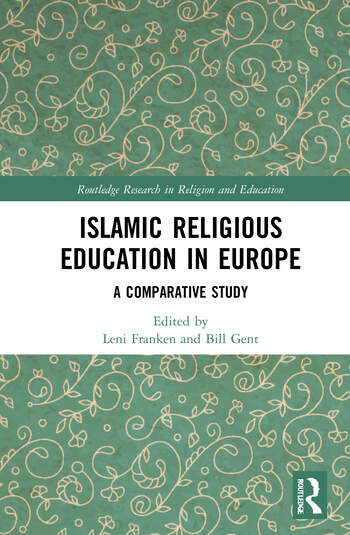
Islamic Religious Education in Europe - Leni Franken & Bill Gent (ed.)
Against the backdrop of labour migration and the ongoing refugee crisis, the ways in which Islam is taught and engaged with in educational settings has become a major topic of contention in Europe. Recognising the need for academic engagement around the challenges and benefits of effective Islamic Religious Education (IRE), this volume offers a comparative study of curricula, teaching materials, and teacher education in fourteen European countries, and in doing so, explores local, national, and international complexities of contemporary IRE.
Considering the ways in which Islam is taught and represented in state schools, public Islamic schools, and non-confessional classes, Part One of this volume includes chapters which survey the varying degrees to which fourteen European States have adopted IRE into curricula, and considers the impacts of varied teaching models on Muslim populations. Moving beyond individual countries’ approaches to IRE, chapters in Part Two offer multi-disciplinary perspectives – from the hermeneutical-critical to the postcolonial – to address challenges posed by religious teachings on issues such as feminism, human rights, and citizenship, and the ways these are approached in European settings.
Given its multi-faceted approach, this book will be an indispensable resource for postgraduate students, scholars, stakeholders and policymakers working at the intersections of religion, education and policy on religious education.
Organizers
University Centre Saint Ignatius Antwerp
Centre Pieter Gillis
an academic platform for interreligious dialogue, active pluralism and interdisciplinary reflection at the University of Antwerp
